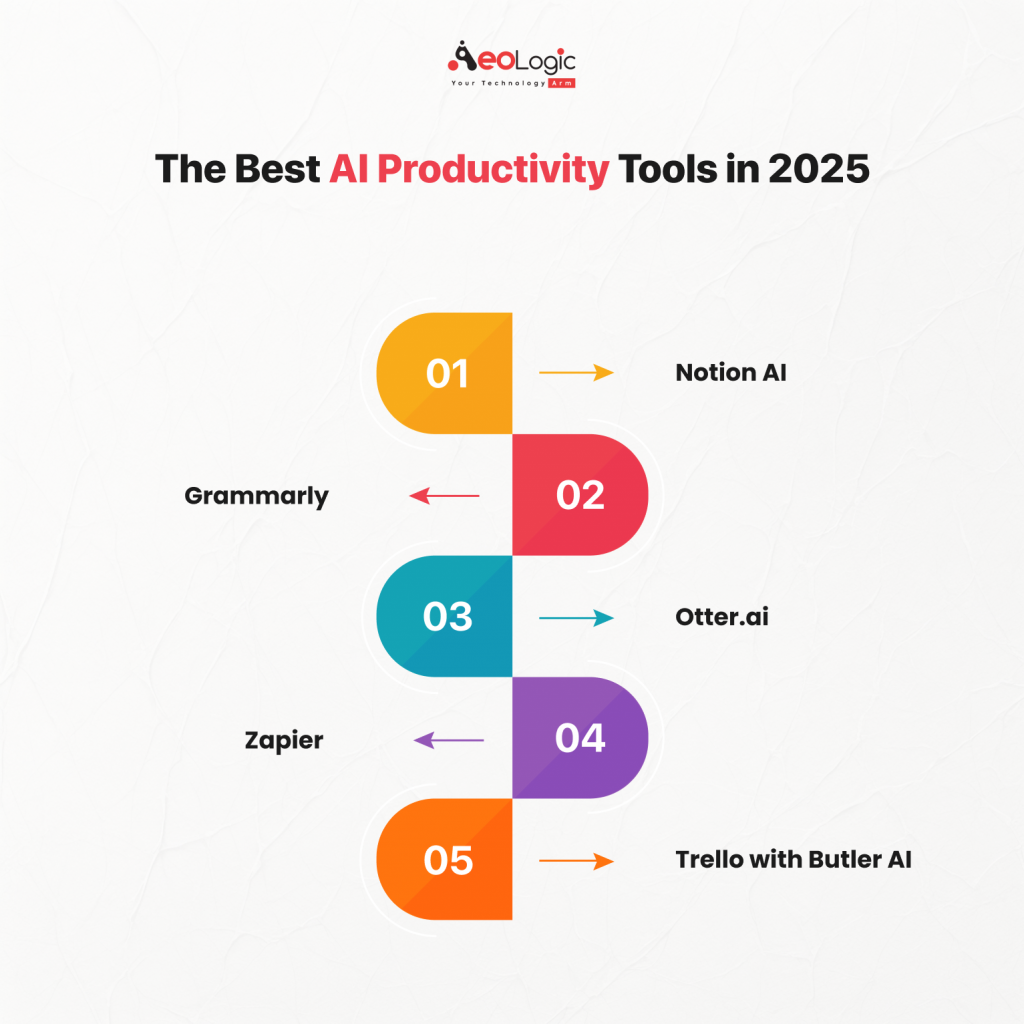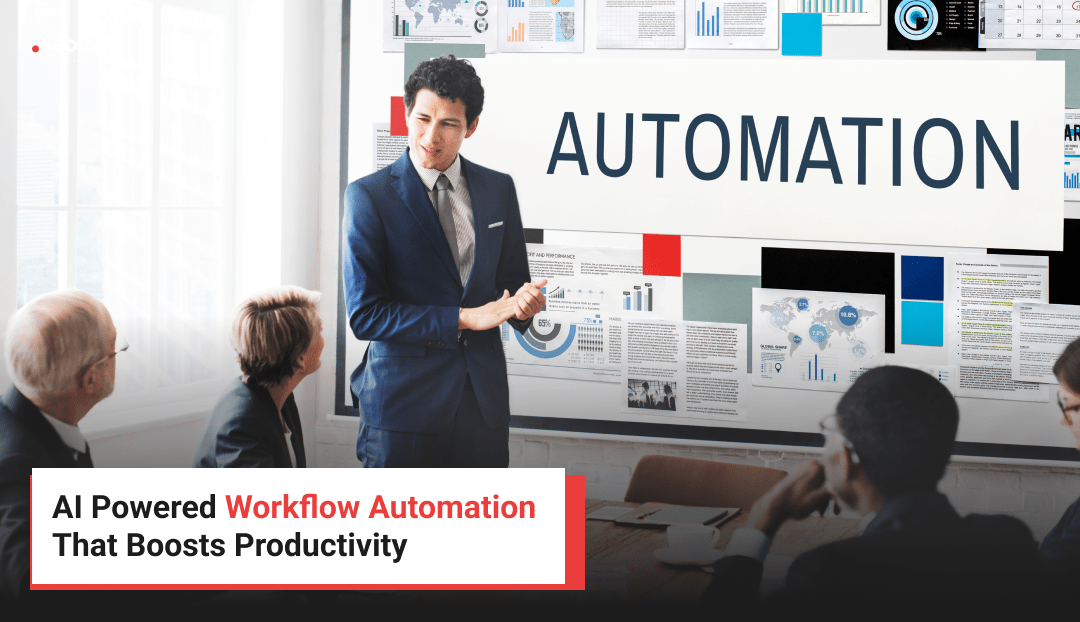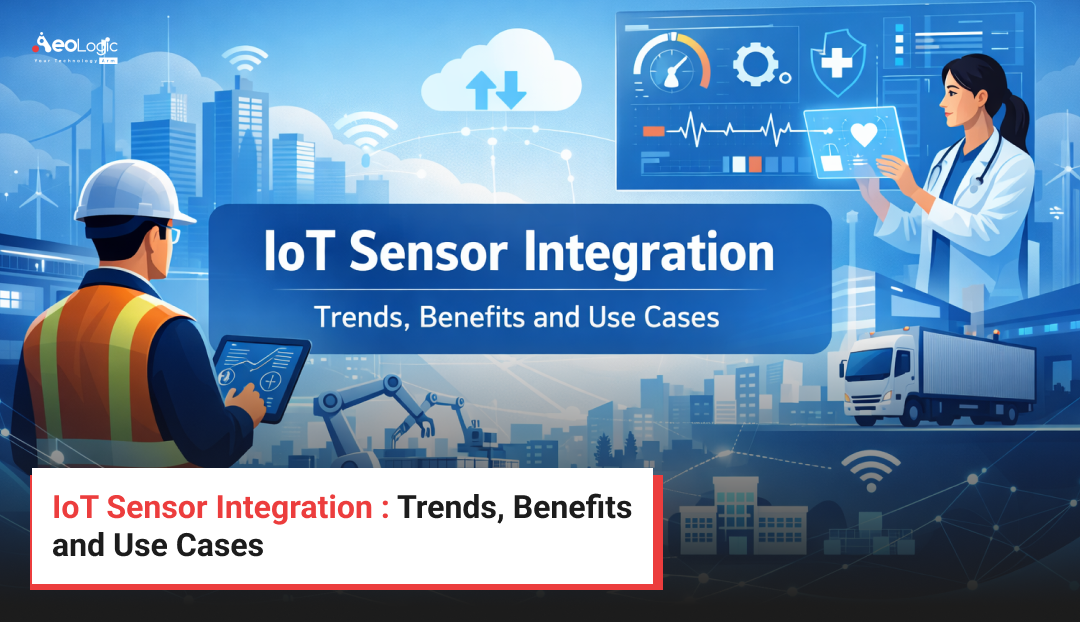In the fast-paced world, businesses must boost their productivity to balance supply and demand. However, increasing human employees or laborers cannot help boost productivity too much as it needs something more powerful and efficient to manage all tasks. AI-powered automation is one of the trending tools or solutions that is automating the operations within businesses to reduce human labor and boost productivity overall.
Workflow automation driven by AI increases productivity by automating monotonous activities, freeing up staff for more valuable work, and enhancing accuracy and efficiency. Faster turnaround times, fewer mistakes, and better resource allocation result from this, which eventually boosts output and profitability. Overall, Workflow automation driven by AI is a potential tool for increasing productivity by streamlining procedures, freeing up human resources, and facilitating more effective and efficient corporate operations.
Global Market Analysis
The Workflow Automation Market size is estimated at USD 23.77 billion in 2025 and is expected to reach USD 37.45 billion by 2030, at a CAGR of 9.52% during the forecast period (2025-2030). Stats show that industries with the highest AI integration witness 4.8 times greater labor efficiency growth. Businesses implementing smart solutions report ROI ranging from 30% to 200% within the first year of deployment, creating significant financial advantages. Incorporation of workflow automation using AI contributes to 67% faster hiring and employee onboarding processes.
Teams leveraging AI-based workflow automation tools see leads increase by 80%, conversions rise by 75%, and qualified prospects grow by an astounding 451%, revolutionizing revenue generation potential. Studies show that it can improve worker performance by nearly 40%. MIT Sloan research found that companies implementing AI-driven automation experience a 40% productivity increase. Where Vena Solutions reported that AI-based automation can streamline sales processes, saving 30 minutes to 1 hour on prospect outreach, 1–2 hours on lead qualification, and 1–2 hours on data analysis.
Explore more: Benfits of Workflow Autmation With Software Solutions
Role of AI-Powered Workflow Automation in Boosting Productivity

AI-powered workflow automation refers to the integration of machine learning, natural language processing, and artificial intelligence to automate various repetitive tasks for businesses in this fast-moving world. AI-powered automation is different from traditional automation as it can adapt to more complex tasks and understand larger databases.
The automation of tasks or operations does not just lead to a boost in productivity but also has various use cases and benefits for businesses. The benefits include enhanced efficiency, reduced errors, better resource allocation, faster time to market, data-driven insights, faster time to market, etc.
Also Read: Top Benefits Automation Solutions for Enterprises
Benefits of Powered Workflow Automation to Boost Productivity
There are various benefits of AI-powered workflow automation to boost productivity. Here are a few mentioned below.
| Benefit | Description |
|---|---|
| 1. Increased Efficiency | Automates repetitive tasks, freeing up time for employees to focus on higher-value work, increasing overall efficiency. |
| 2. Reduced Human Error | Automating tasks minimizes the risk of mistakes caused by manual input, ensuring more accurate outcomes. |
| 3. Streamlined Processes | Workflow automation simplifies complex processes, making them faster and more efficient by eliminating bottlenecks. |
| 4. Enhanced Collaboration | Automated workflows allow teams to collaborate seamlessly, ensuring smooth handoffs and better communication between departments. |
| 5. Improved Accountability | Automated tracking of tasks and deadlines ensures that all team members are accountable for their responsibilities, reducing oversight. |
| 6. Better Resource Allocation | Automation ensures that resources are used more effectively, allowing employees to focus on higher-level tasks while automation handles routine work. |
| 7. Faster Decision Making | With real-time data and automated insights, decision-making processes are accelerated, leading to quicker responses and actions. |
| 8. Cost Savings | Reducing the need for manual intervention lowers operational costs by minimizing the time and resources needed for each task. |
| 9. Scalability | Automation can easily scale with your business needs, handling increased workloads without the need for additional manpower. |
| 10. Enhanced Customer Experience | By automating customer service processes, such as responding to inquiries and managing orders, businesses can offer faster and more efficient service to clients. |
Enhanced Accuracy and Consistency
The manual handling of operations within businesses can lead to human errors that result in inaccuracy and inconsistency. The involvement of AI-powered automation can automate tasks that do not need any human intervention. This enhances the accuracy and also establishes consistency within the operations.
Accelerated Process Execution
Process execution is one of the important benefits of AI-powered workflow automation. AI-powered workflow automation enables quicker hiring and onboarding procedures and a significant reduction in time-to-value for vital company operations. This saves too much time and enhances the efficiency.
Increases ROI
The AI-powered workflow automation automates the tasks that reduce labor costs. The better accuracy and fast performance of operations lead to increased productivity. The increasing demands can be fulfilled within the time that helps to gain customers’ trust in the businesses. This results in an increase in overall revenue generation.
Improved Marketing and Sales Performance
Marketing and sales are two important aspects of the growth of a business. The AI-powered workflow automation can provide various key tools that can improve marketing and also analyze the data gathered through previous sales. AI has the potential to provide insights that help find out the mistakes to improve sales performance.
Scalability and Flexibility
Workflow automation with AI can easily be scaled to meet shifting workloads and business requirements. Additionally, they can be modified to work with current procedures and systems.
This enables companies to stay flexible and sensitive to the needs of the market. The businesses can make decisions according to conditions as they are flexible to every condition.
Also Read: Optimize Your Workflow With Innovative Product Traceability Solutions
Cost to Implement AI-Powered Workflow Automation
The cost of implementation of AI-powered workflow automation depends on various factors like project scope, complexity, data availability, model complexity, integration requirement, infrastructure, development team and expertise, ongoing maintenance and updates, licensing costs, etc.
Simple AI solutions can range from $5,000 to $50,000, while more advanced applications can cost between $100,000 and $500,000 or even exceed $1 million. For robotic process automation (RPA), a single bot can cost between $5,000 and $15,000, with additional costs for licensing, training, consulting, and maintenance. Fully automating a manufacturing line can cost hundreds of thousands of dollars.
Also Read: Transform Your Business With Custom Software Automation
The Best AI Productivity Tools in 2025
| Tool Name | Category | Key Features | Best For |
|---|---|---|---|
| Notion AI | Personal Assistant | Smart note-taking, task management, content summarization, and idea generation. | Organizing personal projects and team collaboration. |
| Grammarly | Writing Assistant | Real-time grammar checks, writing style suggestions, and plagiarism detection. | Writers, marketers, and students. |
| Otter.ai | Transcription | Real-time audio transcription, meeting notes, and collaborative editing. | Professionals who need accurate transcription services. |
| Zapier | Automation | Connects apps, automates workflows, and integrates various services for seamless task management. | Automating repetitive tasks across platforms. |
| Trello with Butler AI | Project Management | Task automation, smart suggestions, and AI-driven project tracking. | Teams looking to manage projects more efficiently. |
| Airtable | Data Organization | Powerful database with AI-enhanced insights, workflow automation, and collaboration tools. | Organizing data and managing workflows in teams. |
| Copy.ai | Content Creation | AI-generated content, including marketing copy, blog posts, product descriptions, and email drafts. | Content creators, marketers, and copywriters. |
Final Words
The future of AI workflow automation seems incredible, with various key trends and opportunities. Key trends like the emergence of generative AI, improved intelligent document processing, and a greater emphasis on ethical AI and responsible automation are some of the major themes in AI-powered workflow automation.
Robotic process automation is another key application of AI-powered automation that is also going to advance. Further developments and advancements include tailored consumer experiences, autonomous virtual assistants, and the incorporation of AI into robotic process automation (RPA) to create more effective processes. Overall, AI workflow automation is going under a revolutionary digital landscape that surely boosts productivity for businesses and makes them reach the top level.

I’m Deepika Pandey, an SEO strategist and content writer with 6+ years of experience. I create SEO-friendly content that drives traffic and engages readers. I combine data insights with creativity to help businesses grow their online presence effectively.







